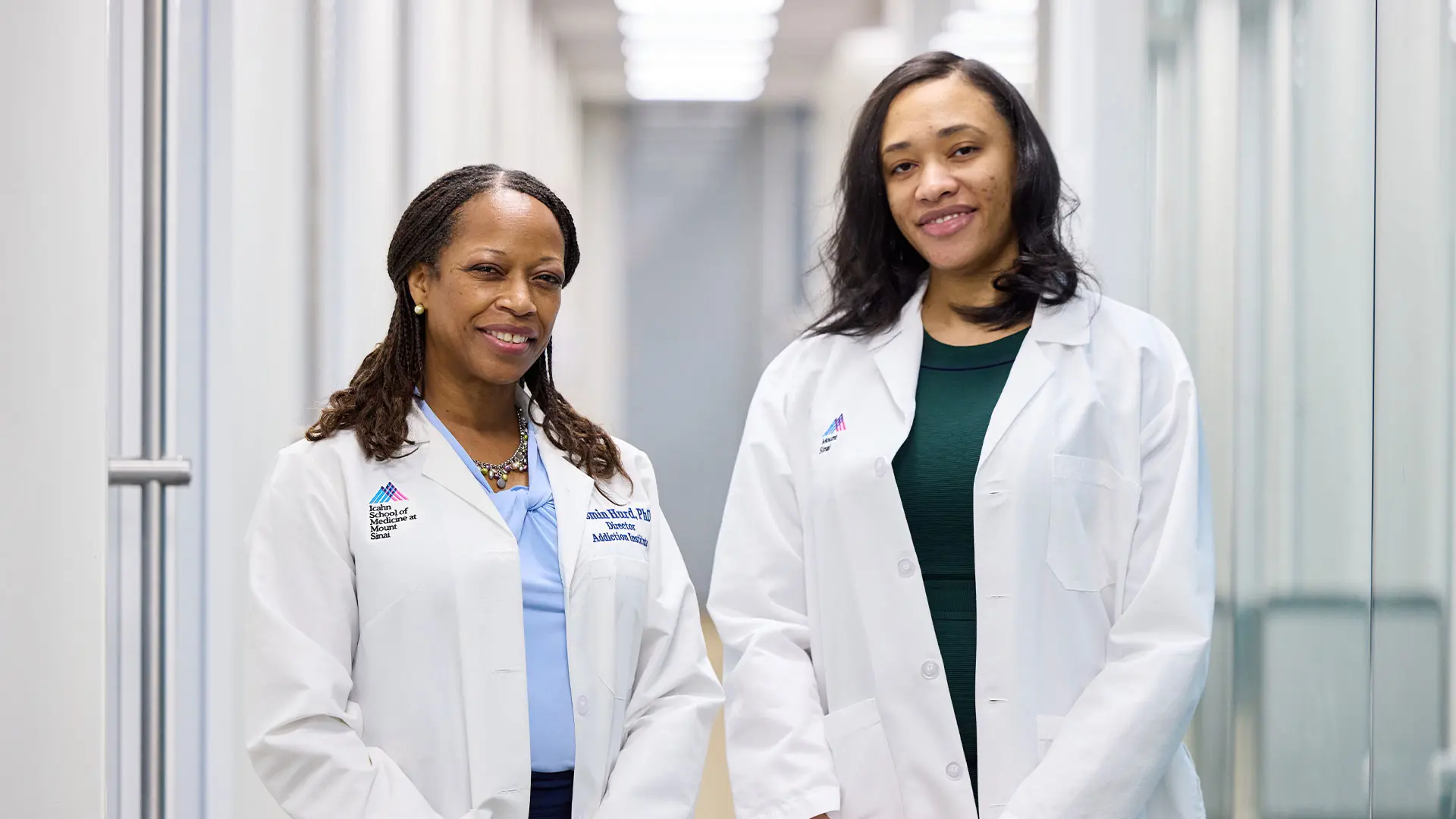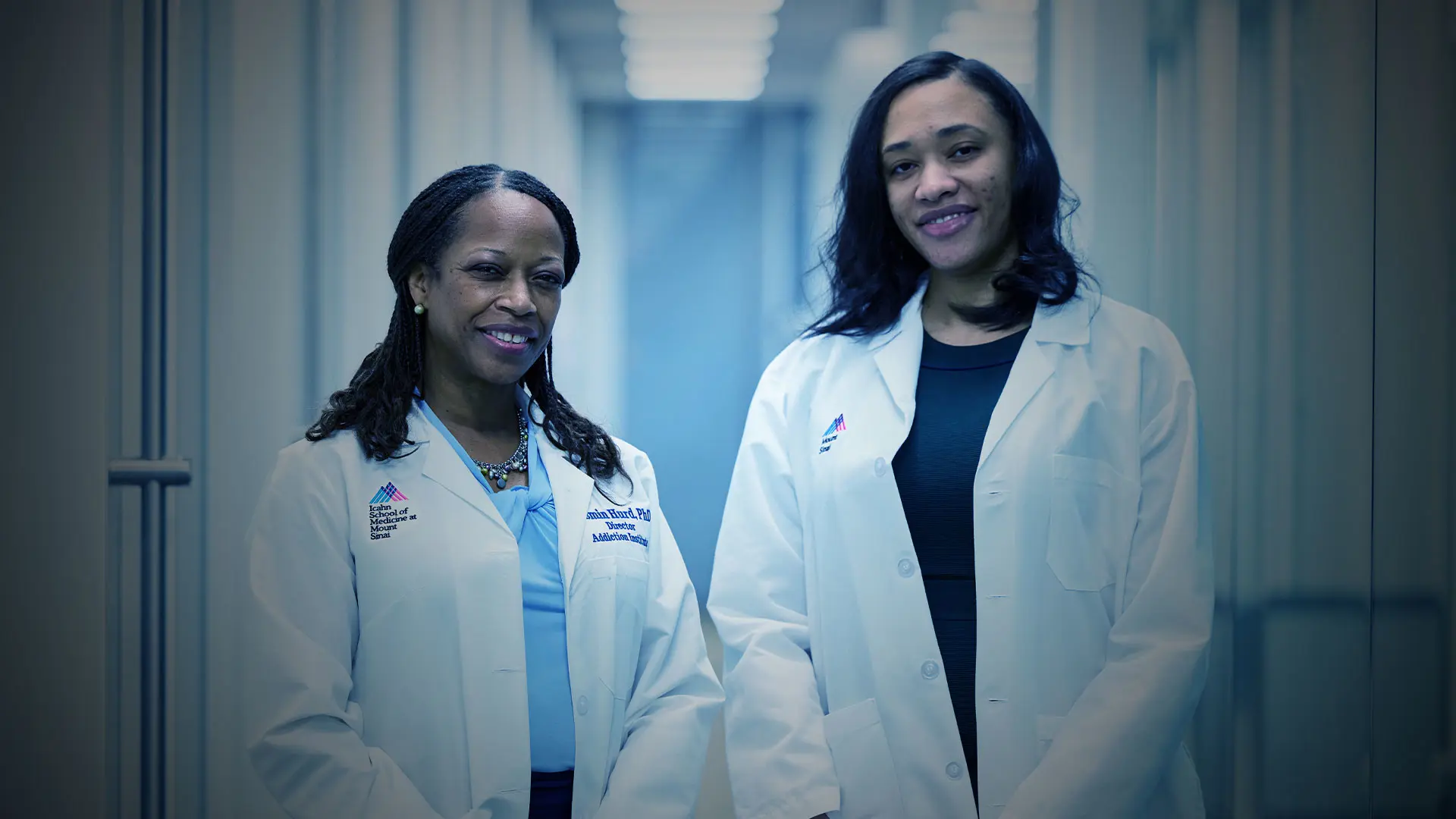Addiction is an all-too-common problem among pregnant people, with devastating results for parents and their children. In 2022, Mount Sinai launched the Bridge Program, an initiative that provides integrated prenatal care and substance-use treatment.
The Bridge Program is the first of its kind in New York City, and it addresses an increasing need. “Until now, there was no integrative clinical program in all of Manhattan where a pregnant person with an addiction disorder could receive prenatal care or consultation from a dual-trained OB/GYN and Addiction Medicine provider. It’s a really overlooked area, and it’s so important for the health of pregnant people and their newborns,” says Joanne Stone, MD, MS, Chair of the Department of Obstetrics, Gynecology and Reproductive Science at the Icahn School of Medicine at Mount Sinai.
“With substance-use disorders, there’s a huge issue of stigma that prevents a lot of women, and thus their children, from getting the care they need,” adds Yasmin Hurd, PhD, Director of the Addiction Institute at Mount Sinai. “If we want healthy children, we need healthy moms.”
Nearly 10 percent of pregnant women use substances during pregnancy. “This problem is just as common as many of the other issues that we test for during routine prenatal care, yet there are limited programs specifically targeting this population,” says Leah Habersham, MD, Assistant Professor of Psychiatry and Obstetrics, Gynecology and Reproductive Science at Icahn Mount Sinai. “And overdose deaths are steadily increasing among women of childbearing age.”
Dr. Habersham aims to use her dual training in obstetrics and addiction medicine to turn those trends around. She is currently the sole provider for the Bridge Program, offering varying levels of care depending on a patient’s needs. If a patient has already established prenatal care, Dr. Habersham offers consultations or provides treatment and support for substance-use disorders. Other patients may choose to come to her for both addiction services as well as obstetrical and gynecological services, including the full range of prenatal care. She also works closely with a social worker to provide additional care and psychosocial resources to her patients.

Yasmin Hurd, PhD, left, and Leah Habersham, MD
“It’s a really overlooked area, and it’s so important for the health of pregnant people and their newborns.”
Joanne Stone, MD, MS
The Bridge Program sees pregnant patients who use or misuse any substances, including nicotine, alcohol, opioids, and other drugs. Dr. Habersham also welcomes patients who are not currently using substances but are at high risk, such as those with a history of addiction or those who may live with a partner who has a substance-use disorder. “If there’s any concern, patients can be referred to this program,” she says.
While interventions are tailored to each patient, Dr. Habersham often uses motivational interviewing to meet patients where they are—and begin to move them toward accepting treatment. “There’s often a lot of ambivalence from patients who aren’t ready to take that next step toward recovery. Harm reduction is important in this setting,” she says.
As a specialist in addiction medicine and obstetrics and gynecology, she brings a more nuanced view to her care of pregnant patients. During pregnancy, for example, patients who receive medication for opioid-use disorders (MOUD) will often need increases in their MOUD regimens to prevent cravings. She makes sure patients are aware of that possibility and are not afraid to speak up if they notice changes in how they are feeling. “Someone without an addiction background may see that as a sign the patient is going to go out and use opioids, though it’s not necessarily the case. Often, patients just need an increase in their doses,” she says. “A lot of times, patients withhold that kind of information from general providers.”
Dr. Habersham also manages prenatal care differently with this population. “A lot of patients with substance-use disorders have trauma in their backgrounds, and many have distrust for their providers. It’s really important to build a strong foundation of trust in the doctor-patient relationship,” she says. That means she may not do a vaginal exam during the first visit, for instance, but wait until the second visit when the patient feels more comfortable. “There are many biopsychosocial aspects involved,” she says.
Because of stigma and stereotypes, there are often inequities in who is screened for substance-use disorders during pregnancy and how they are screened. Even before the Bridge Program was conceived, Mount Sinai’s OBGYN department began screening all pregnant people for possible substance misuse and addiction. “The implications [of substance use during pregnancy] are profound, and it’s important to make sure that screening is done in an unbiased way and in a manner that leads to better health care for pregnant people and their babies,” Dr. Hurd says.
She and her colleagues hope the Bridge Program will be a first step on that path to better and more inclusive health care. Initially, the program is available to patients one day a week. The team hopes to expand the services to reach many more patients in need. “We have all the parts of the toolbox here at Mount Sinai—a detox unit, rehabilitation, residential living, even a female-only methadone clinic. I hope we can become a center of excellence for women throughout the city with substance use and substance-use disorders, and not just during pregnancy,” Dr. Habersham says.
To schedule an appointment with the Bridge Program, patients and providers can call 212-659-8557 or email TheBridge@mountsinai.org.
